Filmmaking Book Recommendations
For years now I’ve been asked what books I would recommend to people interested in learning more about filmmaking. Many of the people who ask me are photographers moving into motion, DPs moving into directing, as well as every day people moving into some aspect of filmmaking, screenwriting and/or directing. So here you go!
The following are a list of books that deal with filmmaking which I would recommend. They range from the technical to the anecdotal – but there is something to learn about the craft of making films in each of them. I have broken them down into three different sections: Screenwriting, Filmmaking, and Post-Production.
Please feel free to share your own favorite books on these subjects in the comments section – a person can never learn too much! Many of these are available in both print and (in my preferred form) electronic download.
Lastly – if you’re not the "reading type" and are more of a "visual" learner – you can always check out some of the video HDSLR courses I’ve done for CreativeLIVE here.
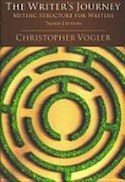 |
The Writers Journey – Christopher Vogler
Screenwriting staple that builds upon Joseph Campbell’s Hero with a Thousand Faces. This book highlights the quest every hero must undertake on any adventure. The go to reference of Darren Aronofsky when working with screenwriters.
|
|---|
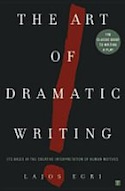 |
Art of Dramatic Writing – Lajos Egri
Classic book that breaks down the tenants of drama. Widely referenced in the filmmaking world.
|
|---|
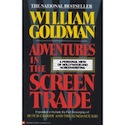 |
Adventures in the Screen Trade – William Goldman
Fun and informative behind the scenes look at Hollywood through the eyes of one of the most successful Oscar-winning screenwriters, William Goldman. Goldman’s screen credits include Butch Cassidy and the Sundance Kid, Misery, and The Princess Bride.
|
|---|
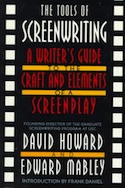 |
The Tools or Screenwriting – David Howard and Edward Mabley Interesting breakdown of the different elements that many successful screenplays have in common. this book focuses mainly on structural elements, such as "the plant" and "the payoff" that assist in crafting a solid, "well-told" story. Additionaly, practical examples of these elements in use are provided through the likes of such films as "Citizen Cane" and "One Flew Over The Cuckoo’s Nest." |
|---|
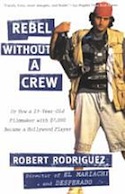 |
Rebel Without a Crew – Robert Rodriguez
Amazing account of how Rodriguez broke into the film industry at the age of 23 with his $7000 film, El Marichi. Tons of useful and inspirational information on how to make a movie on the cheap.
|
|---|
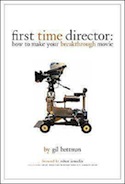 |
First Time Director – Gill Bettman
Awesome book for getting to the heart of what makes a successful first time director. You only get a few shots in Hollywood and this book breaks down how best to make the most of those opportunities.
|
|---|
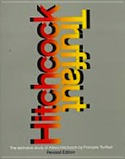 |
Lessons from the master of suspense as written by another legendary filmmaker. The book is an interview of Hitchcock discussing the lessons he learned from a lifetime of filmmaking.
|
|---|
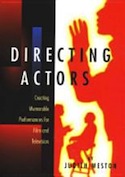 |
Directing Actors– Judith Weston
Essential reading for developing techniques to pull the best performances from your actors. This is one of the most widely referenced books on directing actors out there – it strives to move directors away from "results oriented direction" (telling your actor to "be angry" for example), and give them director a larger tool box full of more creative and efficient techniques for shaping performance. At the very least you’ll walk away with a better understanding on how to better communicate with the actors you work with – which is critical for any director.
|
|---|
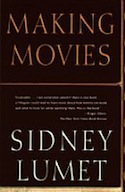 |
A quick read on the directing process of Sydney Lumet. One of the best directing books out there. Lumet directed films such as The Whiz, Dog Day Afternoon, and Network.
|
|---|
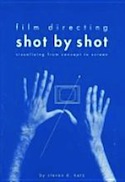 |
Film Directing: Shot by Shot – Steven D Katz
A graphic approach to understanding cinematic language and how best to block out your shots. One of the most important skills to cultivate. This book is part of almost every single film student’s required reading. |
|---|
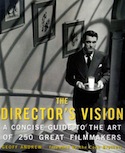 |
The Director’s Vision – Geoff Andrew
An encyclopedic look at 250 different directors from various countries and periods of filmmaking that describes their visuals style and consistent themes throughout their work. Each profile also includes a shortlist of recommended viewing and a list of other directors that have similar aspects to their filmmaking. An incredible reference for film connoisseurs and practicing directors alike.
|
|---|
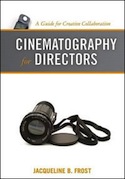 |
Cinematography for Directors – Jacqueline B. Frost
I found this very interesting given that I come from a photography background. It was nice to see how many directors that DON’T necessarily have an eye come to working with DPs. This gives great insight to both DPs and Directors on how to form a stronger and more productive (see: collaborative) relationship on set. While not a "must have" book by any means – it’s a great "different" read if you will.
|
|---|
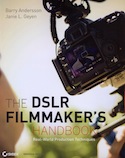 |
The DSLR FIlmmaker’s Handbook – Barry Andersson and Janie L. Geyen
This is a good thorough book if you’re new to DSLR filmmaking. You can really get a good grasp on many of the basics that a lot of others might take for granted. It does a thorough job of examining the technical language, challenges, and gear used in DSLR filmmaking.
|
|---|
 |
Cinematic Storytelling – Jennifer Van Sijll
As a visual storyteller I found this to be a very nice read. Again not a "must have"but I did find it quite enjoyable.
|
|---|
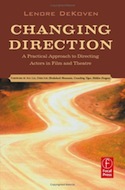 |
Changing Direction: A Practical Approach to Direction – Lenore De Koven
This is another great book for the director searching for practical advice on how to better work w/ actors. Dekoven has been a teacher to many young filmmakers and puts together a very specific, step by step approach to interacting with actors in what is a clearly written book.
|
|---|
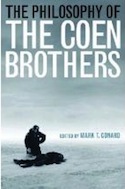 |
The Philosophy of the Coen Brothers – Mark T. Conra
Love for the Coen Brothers’ work aside, this is an interesting read because it is a collection of criticisms that focus not on the stylistic makings of film, but the philosophical underpinnings. And while the Coen Brothers’ philosophies tend to exist somewhere in the range of utterly nihilistic (see: No Country for Old Men), to the passively nihilistic (see: The Big Lebowski), it is always interesting to read how thoughts and ideas about life are woven into narrative, as it is often the bigger ideas behind stories that are more interesting than the story itself.
|
|---|
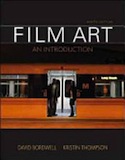 |
Film Art: An Introduction– David Bordwell and Kristin Thompson This book is required reading for almost every entry level film critical studies class. Yes, it reads like a text book – but it is full of incredibly useful information about the art and analysis of films, giving the reader a new perspective on how to read films – from their literary design all the way to their most formalistic aesthetics. |
|---|
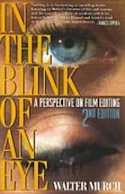 |
In the Blink of an Eye – Walter Murch
Editing theory from one of the masters of our time, Walter Murch. Murch’s editing credits include The English Patient, Apocalypse Now, and the Godfather films.
|
|---|
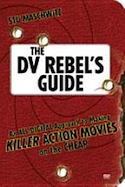 |
DV Rebels Guide – Stu Maschwitz
The ultimate guide to making your low budget film look big by utilizing post production strategies with off the shelf tools. Written by long time visual effects guru Stu Maschwitz who has worked on visual effects on many large Hollywood films.
|
|---|
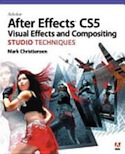 |
After Effects CS5: Studio Techniques – Mark Christianson
The most comprehensive guide on how to accomplish photo real visual effects using Adobe After Effects. Christianson has worked on the visual effects of many large Hollywood films.
|
|---|
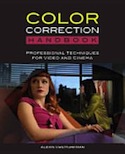 |
Color Correction Handbook – Alexis Van Hurkman
One of the best resources for understanding digital color correction.
|
|---|

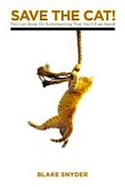
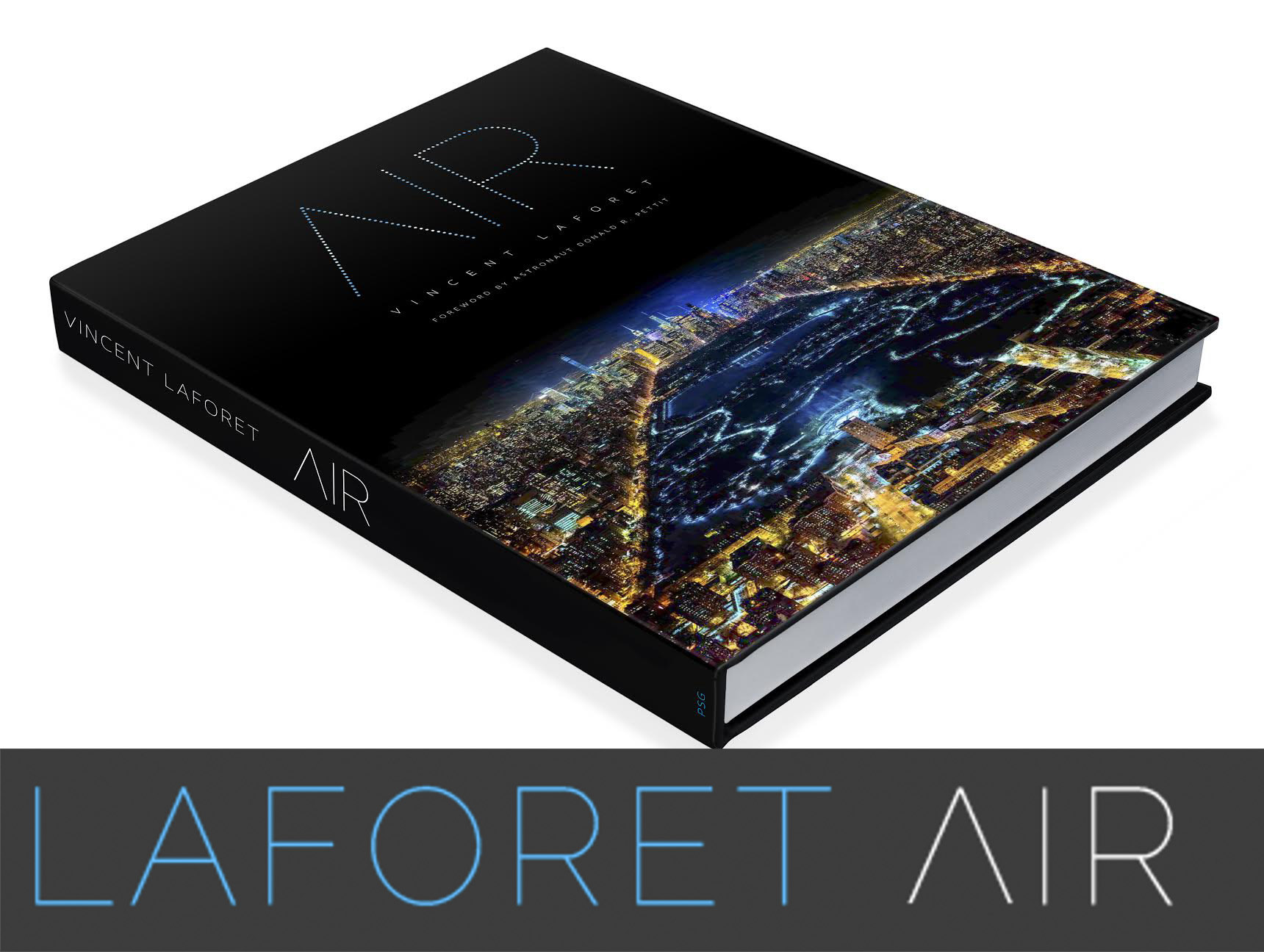
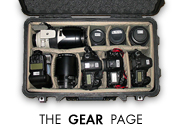
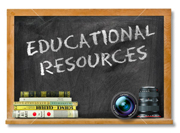
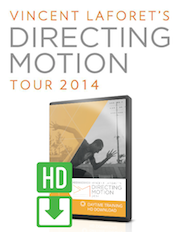
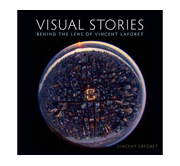
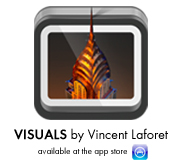






Great collection of books for indie film making. My favorite books are: Five C’s of Cinematography and The Digital Filmmaking Handbook.
Wow. As always thanks Vincent! I’ve got some of these, some I’ve never heard of before, can’t wait to check them out! Not to pour on too much praise but people should also check out the right hand side for your courses and book! 😉
For aspiring Cinematographers, a great book to read is Cinematography Theory and Practice: Image Making for Cinematographers, Directors, and Videographers.
Highly recommend adding The Eye is Quicker to this list.
Suprised you didn’t mention Robert Mckee’s Story.
Going through film school, I never read any of these books. When I do have an itch to read them, I don’t seem to find the time.
I think I’m more of the learn as you go person and if there’s an issue, I consult the internet.
Thanks Vince, exactly what I was looking for, a nice library of film books and references.
I also second the recommendation Cinematography Theory and Practice: Image Making for Cinematographers, Directors, and Videographers by Blain Brown.
Great list, thanks!
Robert Mckee’s Story should be on the list as well
In my opinon 🙂
Kal Bashir’s 2000+ stage Hero’s Journey And Transformation Through A New World / State at http://www.clickok.co.uk/index4.html is by far the best screenwriting / filmmaking book.
I would strongly recommend David Mamet’s
Bambi vs. Godzilla: On the Nature, Purpose, and Practice of the Movie Business
and
Three Uses of the Knife: On the Nature and Purpose of Drama
Thank you, Vincent, I really appreciate the great list; just ordered a few.
Don’t forget “Shooting a movie without shooting yourself in the foot”! It’s a great read and discusses technical and political aspects such that they can be put aside in the interests of creativity.
Hey Vincent, really admire your work and love all of your tips and help for fellow filmmakers!! Do you have any suggestions for books/sites for learning the art of Producing? Or Audio? Trying to crack into learning those fields and curious if you had any ideas/input!
Thanks so much Vincent, keep rocking amazing stories,
Geoff
Vincent Laforet Reply:
April 9th, 2012 at 12:32 pm
No not really… good question. Anyone else care to contribute?
@Vincent Laforet, this is not the most entertaining or engaging piece of literature, but here’s a few useful books for producers or filmmakers getting into the business side of filmmaking (all found at Amazon):
-The Complete Film Production Handbook
-Getting the Money: A Step-By-Step Guide for Writing Business Plans for Film
-The Independent Film Producer’s Survival Guide: A Business and Legal Sourcebook
-The Art of Film Funding: Alternative Financing Concepts
-The Pocket Lawyer for Filmmakers: A Legal Toolkit for Independent Producers
I asked our composer for a few audio book suggestions, he mentioned these ones:
-“Roll Sound!”: A Practical Guide for Location Audio
-Sound for Film and Television, Third Edition
-Producing Great Sound for Film and Video
-The Sound Effects Bible: How to Create and Record Hollywood Style Sound Effects
That should do for a start! Happy reading!
Comprehensive list, all my favourites in there – nice.
Hello There. I found your weblog the use of msn. This is a really neatly written article. I will make sure to bookmark it and return to learn more of your helpful information. Thank you for the post. I will certainly comeback.
@short clips, I just found this blog through Google blog search. Incredibly helpful stuff!
Are there any books that explain the legality of ‘borrowing’ film footage from other sources for the inclusion in montages or other films? For example, at the start of a lot of zombie movies you see loads of news reports mixed with clips of rioting and police. I’ve found a really good footage site for that sort of thing, but I just want to be sure I won’t get the pants sued off me for using it. Many thanks.
Vincent Laforet Reply:
May 8th, 2012 at 2:52 pm
No such thing as “borrowing.” There are stock sites, footage sites and otherwise each clip is cleared w/ the owner/org that owns it – it’s a big part of any documentary job actually.
I’m a little biased, but there is a new filmmaking book called: Filmmaking Stuff – How to make, market and sell your movie without the middle-man!
hey vincent i came across this website called celtx.com, and i saw some books they were offering on how to screenwrite, how good do you think that would be for beginners who are just starting out
Vincent Laforet Reply:
May 17th, 2013 at 10:34 am
I have a section on books in the educational resources section of this blog
please i want purchece learn to film directoring book. thanks.